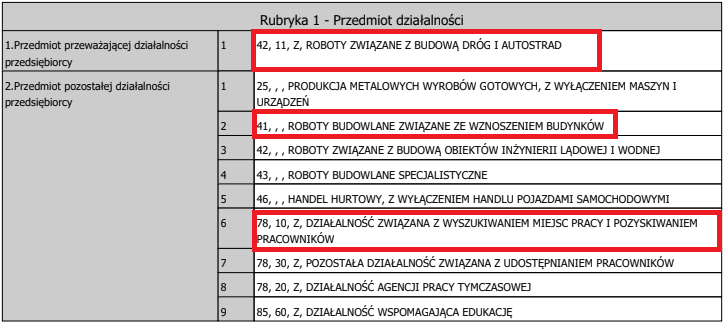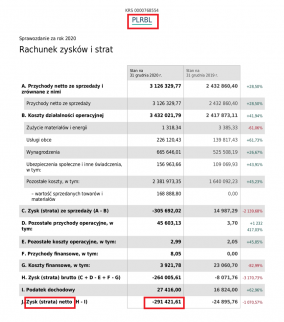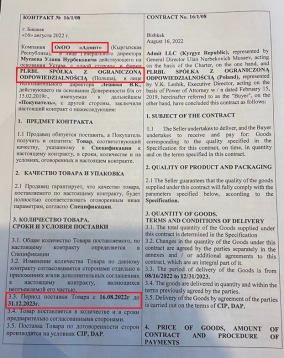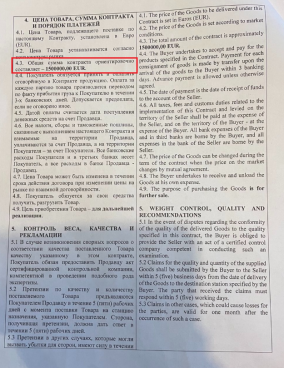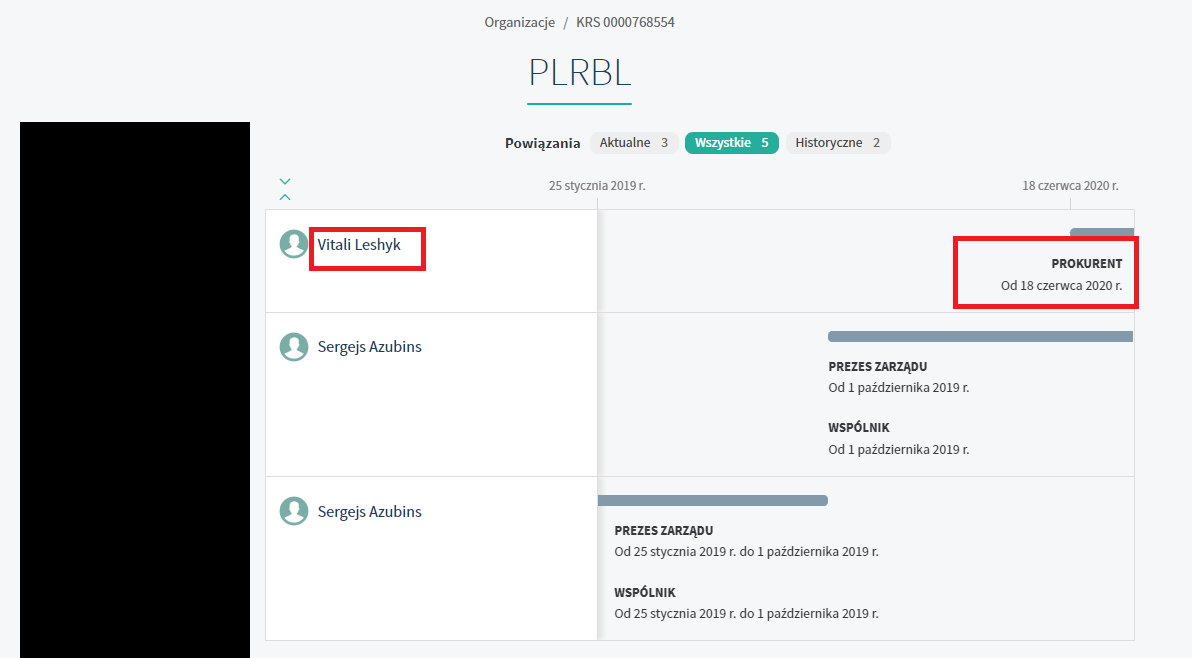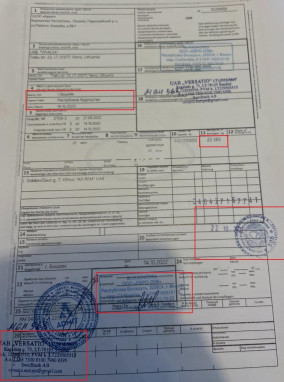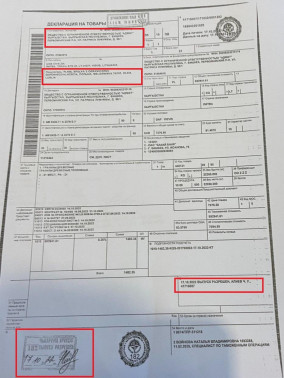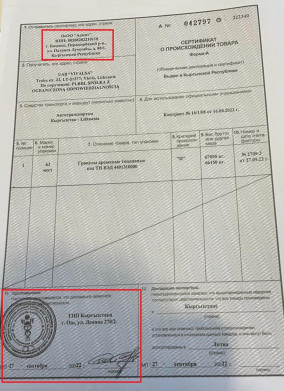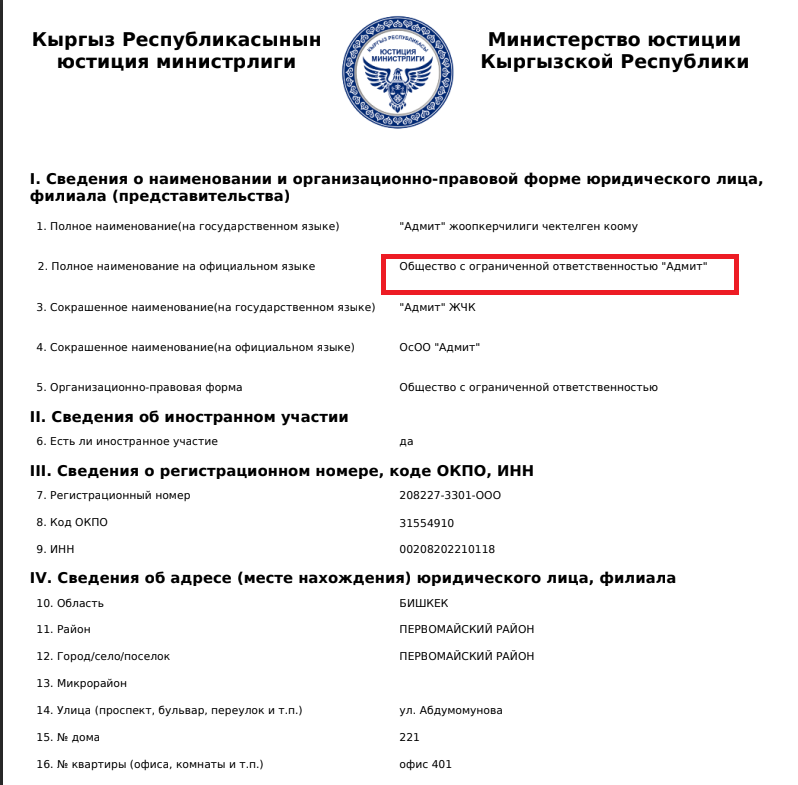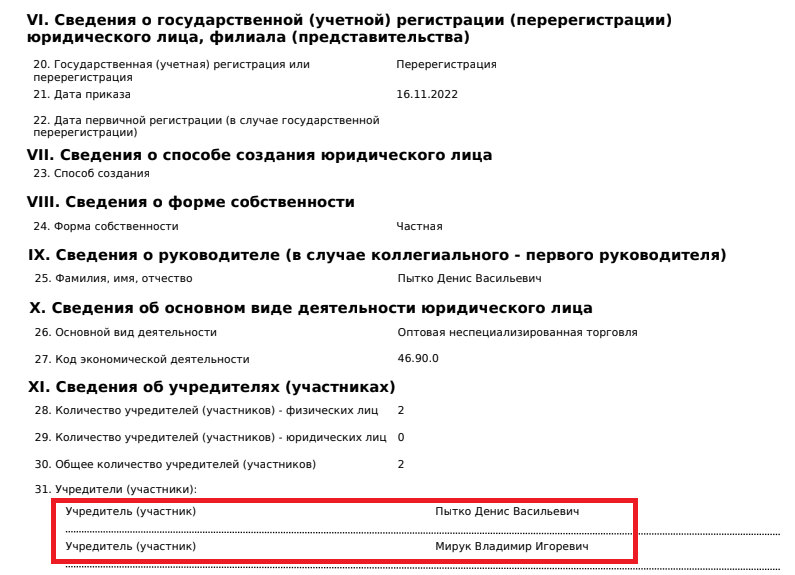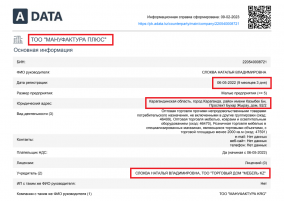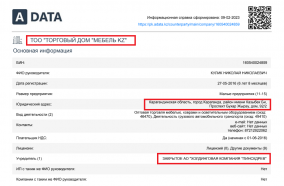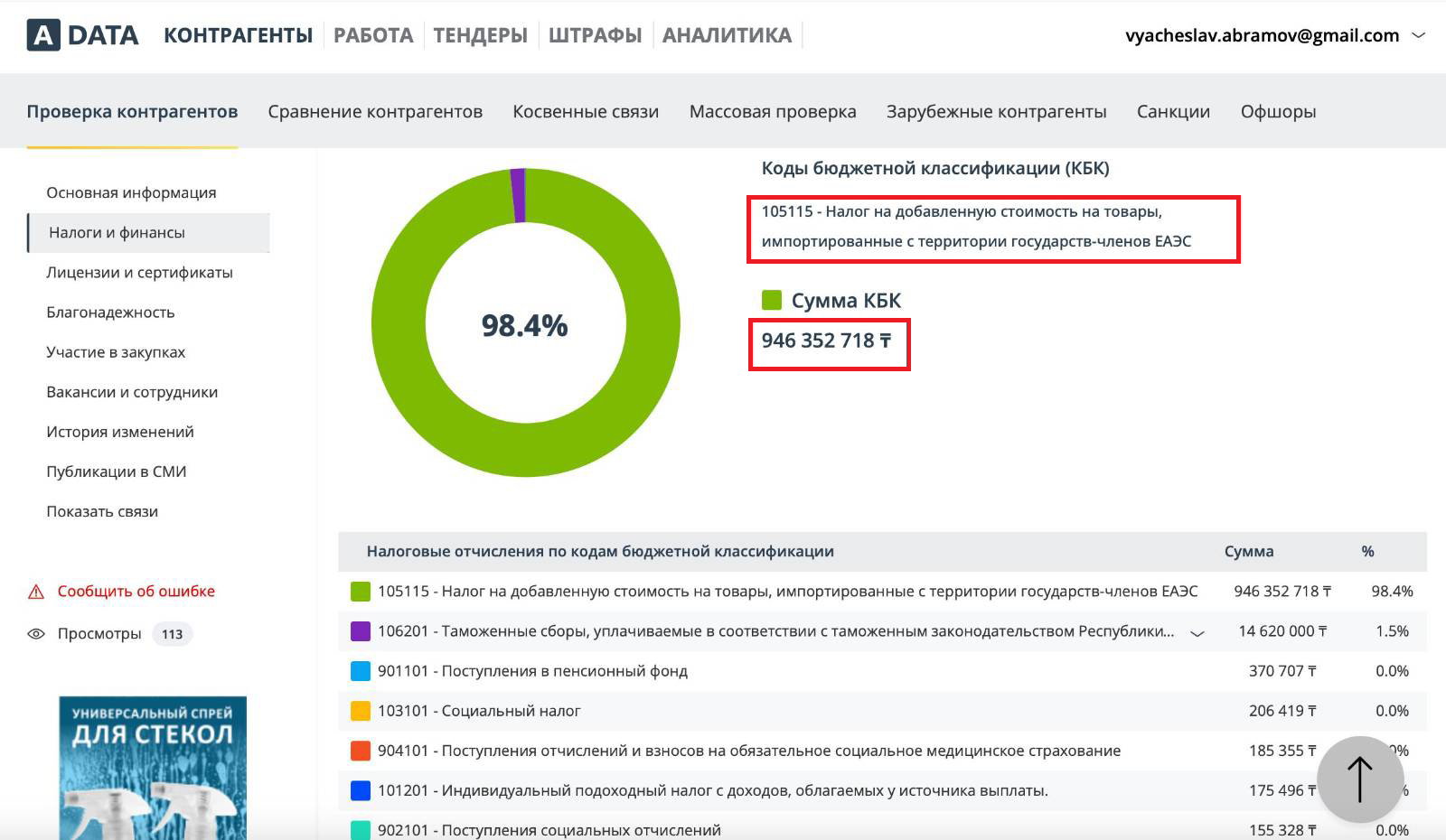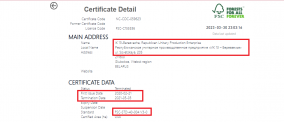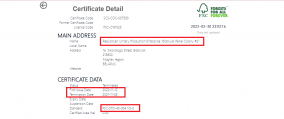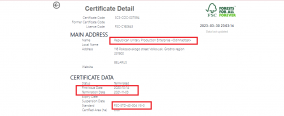This article was developed with the support of Journalismfund Europe.
Smuggling cigarettes with wood products
After sanctions were imposed on the export of Belarusian potassium fertiliser and timber, the volume of smuggled cigarettes entering Lithuania decreased significantly. According to Lithuanian Customs figures, intercepted smuggled tobacco products from Belarus to Lithuania decreased over 2.5 times in 2022. Before that, confiscated cigarette contraband grew exponentially. In 2019, 8.6 million packs of cigarettes were intercepted at the border. In 2020, they were twice as many (16.88 million); In 2021, 22.4 million. But in 2022, the volume of smuggled cigarettes fell to the 2019 level.
Customs officials believe the number decreased because the sanctions list includes goods in which cigarettes are traditionally hidden. These include timber and wood products.
Despite the sanctions and scandals listed in our past investigations, Belarusian timber continues to enter the EU. However, the Belarusian authorities have redirected some of the exports to China. Wood deliveries to China increased by one-third in 2022. But some still finds its way to the EU.
Belarusian pellets go to Europe
We have evidence that sanctions on Belarusian timber have been the catalyst for new financial opportunities for several businessmen.
The Polish company PLRBL– on the books – deals with construction in Eastern Europe. It ended the year 2020 with a loss of $77,500.
However, a few months after the sanction on Belarusian wood, in August 2022 it signed a contract with the Kyrgyz company Admit to supply wood pellets. Through December 2023, Admit is contracted to supply PLRBL with fuel material worth €1.5 million.
This alone wouldn't be a problem if the wood used to make the pellets was not bought in Belarus, and then sold to the EU. One PLRBL executive, Belarusian Vitali Leshyk, does not even hide it.
Our colleagues from FRONTSTORY.PL, under the guise of buyers, arranged a meeting with company executive director Leshyk. He traveled from Biała Podlaska to Warsaw to meet with potential clients. While negotiating, Vital let slip that he could help the customers buy Belarusian pellets.
Before meeting Leshyk, some preliminary research gave reason to suspect PLRBL of engaging in shady schemes. For example, we have the company's international consignment note for the pellets in question from Kyrgyz Admit. It states that a truck was allegedly loaded with over 22 tonnes of wood pellets on October 14, 2022 in Bishkek. Eight days later, Belarusian customs marked the consignment note, meaning the cargo crossed the Belarusian border. Judging by the documents, the cargo was delivered to Belarusby the Minsk transport company Euro-2006. In Lithuania, the wood pellets were transported to Vivalsa's warehouse in Vevis by local haulier Versatio. This shipment was intermediated by PLRBL.
The goods declaration was signed by Kyrgyz customs officers and the certificate of origin was issued by the Chamber of Commerce and Industry in Osh, Kyrgyzstan.
According to the PLRBL executive, they do business not only in Poland and Latvia but also in Kyrgyzstan and Kazakhstan. They buy wood in Belarus, and ship it to Kyrgyzstan or Kazakhstan, where it is processed into pellets. Documents are drawn up to make it look as if the raw materials come from Kyrgyzstan or Kazakhstan.
We also called a PLRBL representative in Belarus under the guise of a client. We talked to Aleh Yanovich. who confirmed the company does supply pellets, but refused to discuss details over the phone. He said he was afraid of being “set up”.
Identifying ourselves as journalists, we contacted PLRBL owner Sergejs Azubins. He said he did not know the details of each transaction, but denied allegations this company had violated European sanctions. He said his company had anti-sanction measures in place.
By the way, Admit, the Kyrgyz company that supplies fuel pellets, has already been mentioned in our investigations. Its owners are Belarusians Dzianis Pytko and Uladzimir Miruk.
Admit also supplied wood to Lithuania from Kyrgyzstan. However, our Kyrgyz colleagues from Current Time Asia (Nastoyaschee vremya Aziya) media, following that investigation, went to Admit’s registration address and found no pellets production there.
Representatives of Kyrgyz media Kloop.kg also visited the site. Their journalists were also unable to find the ghost company’s production.
Admit obtained the mandatory manufacturer’s certificate from the Kyrgyz Chamber of Commerce and Industry. Does this mean that Chamber officials never checked whether the production actually existed? Our colleagues spent quite some time trying to get the local authorities to answer, but to no avail.
We managed to get through to Admit to ask if the firm had a production facility that our partners in Kyrgyzstan could visit. But Admit co-owner Dzianis Pytko refused to talk to us.
We found that from July to November 2022, PLRBL delivered some 2,000 tonnes of pellets worth €740,000 to Lithuania, and from August to December 2022, Admit delivered 2,500 tonnes worth €860,000.
From Uralsk-based Pinskdrev with love
It looks like Belarusian state-owned manufacturing giants are also trying to circumvent sanctions. We have documents indirectly suggesting that Pinskdrev may be involved in dubious schemes.
10 out of 10 Polish and Lithuanian companies interviewed told us by phone that after the ban imposed on Belarusian timber, they started importing plywood and pellets from Kyrgyzstan or Kazakhstan. These sudden export opportunities caught the attention not only of Belarusian businessmen, but also of Pinskdrev's management.
Just a month before the sanctions against Belarus timber took effect on 6 May 2022, a new company Manufaktura Plus was registered in Karaganda, at the address of Pinskdrev's official trade representative office in Kazakhstan. The founders of the company are Natalia Slokva and Torgovyi Dom Mebel KZ. The sole owner of the latter is ZAO Kholdingovaya Kompaniya Pinskdrev.
The Manufaktura Plus website says the company is the official dealer of Semipalatinsk Wood Processing Plant No. 1. This firm is the only producer of large-size plywood in Kazakhstan. Does this mean that Belarus-based Pinskdrev created the company to sell its competitor's products in Europe?
We called Manufaktura Plus and asked whose products the Belarusian representative in Kazakhstan promotes. Those of the Semipalatinsk plant, was the answer.
We also sent an official enquiry to Pinskdrev. There has been no answer so far.
Let’s assume Pinskdrev has nothing to do with this scheme. It still looks like Polish and Lithuanian companies are importing wood products from countries that simply do not have enough forests to sell wood in large quantities.
We have already reported on the export miracle in Kazakhstan and Kyrgyzstan following the imposition of sanctions on Belarus. From June 2022 to January 2023, sales of wood products from Kazakhstan to the EU increased by a factor of nearly 137, and from Kyrgyzstan by a factor of 12,000. Those figures converted in revenues of up to €58 million in eight months.
Kazakhstan is a forest-deficient country. Its landscape is desert and steppe. Only 5% is covered by forest, eight times less by percentage than in Belarus. Kazakhstan is 10 times larger than our country, so the forest area there is bigger than in Belarus. However, half of these forests are saxaul, short trees with mostly crooked trunks.
Kyrgyzstan timber exports in such quantities seem miraculous. This country is comparable in size to Belarus, and its forest cover is less than 6%. Tien Shan spruce dominates, while the hot conditions of the Altai are favourable for juniper and floodplain species.
We linked these facts with Pinskdrev. Under the guise of a client, we called Manufaktura Plus and ordered 1525x1525 mm, 15 mm thick plywood sheets. We were specifically interested in 27-sheet packages. The company confirmed they had them available.
According to market sources, only Pinskdrev supplies plywood in the 1525 x 1525 format with a thickness of 15 mm in 27-sheet packages.
We tried to check this information with an official request to the firm in Belarus, but have not yet received a reply.
In addition, an anonymous source in the transport industry has told us that Pinskdrev ships its plywood to Uralsk. There, the goods are stickered with the Semipalatinsk Wood Processing Plant logos. The products are then loaded onto trucks with Kazakh and Lithuanian license plate numbers and shipped to Europe, thus circumventing sanctions.
We found out that at the Semipalatinsk plant, whose products Manufaktura Plus claims to sell, plywood with the same measurements is packed in 26-sheet rather than 27-sheet packs. We could hear the staff in the background referring to the Pinskdrev plywood when we called the factory.
Manufaktura Plus supplied plywood to Lithuanian, Polish, Bulgarian, Estonian, Hungarian and Latvian companies. It appears that state-owned Pinskdrev, while sanctioned, set up a company in Kazakhstan and continues to make money.
In less than a year, the company paid over 2 million dollars in value-added tax in Kazakhstan alone. This is the tax on the products Manufaktura Plus imported from the territory of the Eurasian Economic Union countries. The company officially employs no more than 5 people.
It seems that not only private traders, but also the state-owned timber giant Pinskdrev have learned how to circumvent sanctions on Belarusian timber.This questions the effectiveness of any additional sanctions imposed by the European Union on Belarus.
Quality certificates for Belarusian prisons
In addition to direct sanctions the EU has imposed on Belarusian timber, there are several other conditions meant to prevent illegal shipments of goods. When selling timber to the EU, one has to provide a document proving the raw material was obtained ethically, and that no forced labour or violations of environmental regulations for sustainable use are allowed.
This is another twist in the story.
As we found out during a joint investigation with the German publications Paper Trail Media and Der Spiegel, Belarusian prisons managed to obtain international "ethics" certificates for their products. This is despite the fact that forced labour is used, including political prisoners.
"Detention conditions in the penitentiaries as a whole are often a form of cruel inhuman degrading treatment, Viasna human rights activists noted in their reports. They also gave examples of violations of prisoners' labour rights, including cases of industrial injuries and the reaction of the correctional facility administration to them," Pavel Sapelka, a lawyer at the Viasna Human Rights Centre, told BIC.
While working as part of the International Consortium of Investigative Journalists (ICIJ), we found violations in the certification of Belarusian woodworking enterprises.
Shortcomings have been identified in the work of the two largest independent ethical labeling organizations , FSC and PEFC. Without their certificates, import into the EU is still possible, but the majority of big European timber buyers will not accept such goods. EU buyers often demand a certificate even from small producers.
As recently as 2021, eight Belarusian penitentiaries sold their products with certificates renewed by the FSC. Despite repeated reports by activists of human rights violations in penitentiaries, the certificates were only withdrawn at the end of 2021. Before then, according to Earthsight investigators, goods produced by political prisoners and others entered Europe unhindered.
"Certification is carried out under tight deadlines with a limited number of experts, [...] so the organization applying for certification may try to hide some production aspects. And the certifying organization may overlook some inconsistencies. This can be done deliberately, but most likely it wasn't intentional in this case," environmentalist Inessa Balotsina said of the violations.
FSC stated that “forced labour is not an inherent issue of all penal colonies” and that FSC audits in the prisons had confirmed that prisoners were not forced to work, and were paid, “even if at a low rate”. The FSC Board claimed that “certification bodies terminated the FSC certificates of penal colonies in Belarus in 2021 due to concerns about human rights violations (following the 2020 elections)”, but did not explain, if this was the case, why the terminations were not listed as ‘terminated and blocked’, or why they took so long to occur.
The second Belarus organisation, PEFC, did not freeze its certificates recognising timber from Belarus and Russia as "conflict" until 2022, when the Russian Federation attacked Ukraine. Before the war, the organisation's certificates were still valid, despite human rights violations in the country. In Belarus, this international organisation is represented by the state enterprise Belgiproles. This means Belarusian officials conduct audits of the state forest enterprises. That is, they inspect their own business.
We sent a request to PEFC but have not received a response.
It is not only timber from Belarus that finds its way to Europe, evading regulators and sanctions. This was proven by our colleagues from Der Spiegel as part of the Deforestation Inc. project. In particular, despite EU sanctions against the п expensive teak wood, which is used, for example, for decks on yachts, is entering Germany.
This investigation was carried out in partnership with Siena, Fundacja Reporterow, Re:Baltica, Kloop, Vlast, with the assistance of CyberPartisans and OCCRP.




